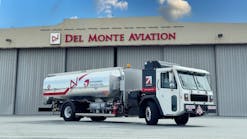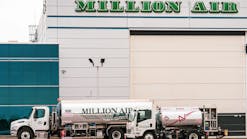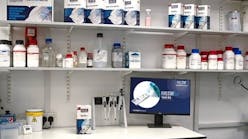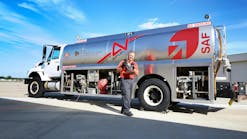March 30--TAMPA If you thought picking winners in this year's March Madness basketball bracket was difficult, wait until you plan your summer travel budget.
Gasoline prices have increased to almost $4 a gallon and air fares are soaring.
It will be difficult to determine how much to budget for gasoline expenses and when to commit to airline tickets and fares. You might even need to be concerned about whether the small airport where you booked a flight will retain its service.
Oil-price speculation and international and U.S. election-year political rhetoric are among factors exacerbating customarily volatile fuel prices. Uncertainties in U.S. and world economies continue to affect consumer perceptions and travel demand.
"As long as there are continued tensions with Iran over sanctions put in place to curb their nuclear efforts, we will see volatility in the market that affects gas prices," said Jessica Brady, AAA spokeswoman for The Auto Club Group.
George Hobica, an oft-cited aviation industry expert who heads airfarewatchdog.com, offers this advice to travelers from the Tampa area: "Take a cruise."
"Airlines call them 'sale fares' at $300 to $400," Hobica said. "It costs $432 for a round-trip between Tampa and Cleveland. That's just discouraging. I don't know where people get the money to pay these prices."
Rising gas prices will affect business and leisure travel plans this summer, the U.S. Travel Association said in releasing a gas price survey this week conducted between March 8 and 11.
More than half of all travelers -- 57 percent -- who plan to travel by car would alter their travel plans if gas prices increased by 26 cents to $1.25, the survey found.
Nearly 40 percent of vacationers traveling by air would seek cheaper tickets before canceling their leisure trips and 10 percent of business travelers said they would switch modes of transportation if fares got higher, although most will continue to travel.
"We just deserve a vacation," said Lanie O'Brien of Tampa, whose family intends to go ahead with a summer flight to San Francisco and spend time in Napa Valley. "I don't know how much higher the fares are now than before. But we will sacrifice on other expenses to be able to travel."
Last year, average air fares increased nearly 17 percent. Airlines have attempted five increases this year, the most recent two weeks ago when JetBlue Airways raised fares by $10 on many domestic flights. Southwest Airlines this week cited fuel prices for its $4 to $10 round-trip increases and Delta Air lines, US Airways, American Airlines, Frontier Airlines and United Airlines followed suit in raising fares.
Fortunately for local residents, average domestic air fares at Tampa International Airport customarily rank among the lowest nationwide, owing to plentiful competition among a mix of legacy and low-fare carriers.
The latest U.S. Department of Transportation data ending with the third quarter on Sept. 30 ranked Tampa 87th among the busiest 100 U.S. airports in average air fare at $305.39. The national average was $360.73.
The mainstay carrier at St. Petersburg-Clearwater International Airport, low-fare carrier Allegiant Air, serves 23 small markets with nonstop flights from Pinellas County.
None of the destinations that airlines from Tampa or St. Petersburg-Clearwater serve is on a list of 88 small-market airports that the trade journal Aviation Week Intelligence Network cited as vulnerable for jet service as airlines ground 37- to 70-passenger regional jets to counter higher jet fuel prices.
However, Lakeland -- in a move announced as temporary -- this month lost its only commercial airline service when Direct Air canceled flights operated with Sky King Airlines' Boeing 737s because of rising jet fuel prices.
To cope with rising air fares, consumers must continue to seek what few "bargains" might exist. Airfarewatchdog.com is a free service that provides unadvertised and advertised air fares between destinations.
Southwest Airlines is offering 25,000 points that could be sufficient for a round-trip flight for those who accept a Southwest Rapid Rewards Visa card. Despite the $59 annual fee, the credit card could pay off with air fare savings and additional benefits it provides.
Long-term solutions are more dicey, fraught with political overtones. Airlines for America, a Washington-based trade group, is involved in the "Stop Oil Speculation Now" campaign supported by a range of organizations, companies and individuals.
"While the Dodd-Frank Wall Street Reform and Protection Act has been made into law, it hasn't been implemented properly in order to close loopholes, improve oversight and increase transparency in commodity markets, which would mitigate the volatility of oil prices," Airlines for America spokeswoman Victoria Day said.
Hobica said airlines must do better with adding newer, more fuel-efficient airliners. "I am shocked airlines have relied on fuel hedging for years that can backfire when they are locked into fuel contracts," he said.
Lisa Sardegna, a Tampa resident who is a principle with Punch Boxing for Fitness training facilities, offers a simple solution to high gasoline prices.
"Everyone should go on strike by not buying gas for a day," said Sardegna, who spends $80 on gas to travel every other week to a Miami business location, in addition to $80 a week for regular fuel purchases in the Tampa Bay area.
Gas prices, however, are just one component of the travel story, said David Huether, senior vice president for research for U.S. Travel.
"People see the cents and dollars add up as they pump gas," Huether said. "But as job growth accelerates and unemployment comes down, that could outweigh fluctuations in gasoline prices."
Copyright 2012 - Tampa Tribune, Fla.




